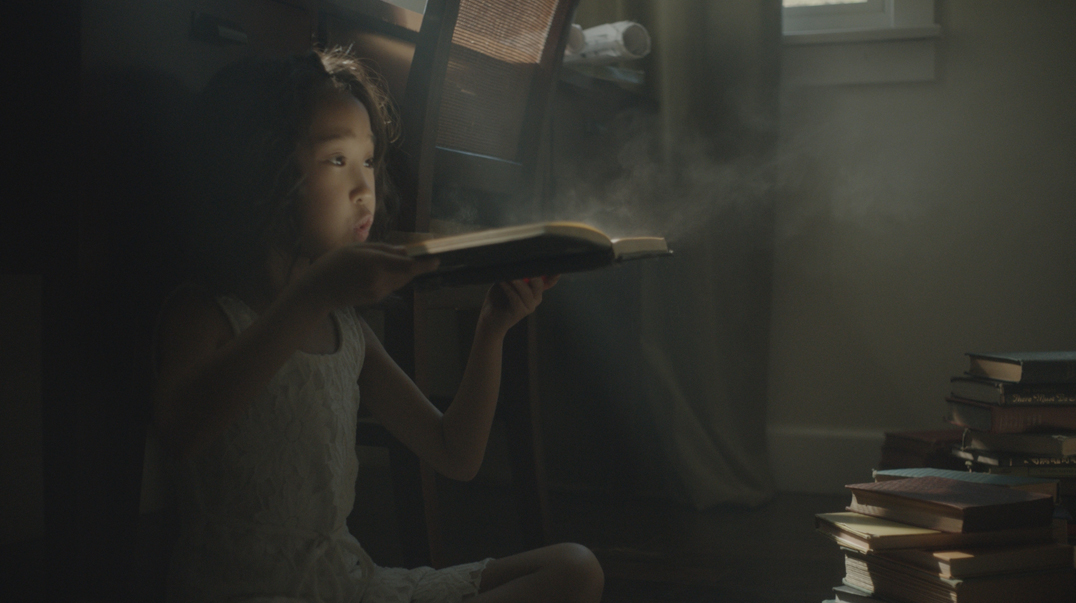The Light and the Little Girl is a deceivingly simple film that leaves much to the imagination. Director Guy Pooles does a fantastic job capturing not only the limitlessness of a child’s imagination, but also the exploratory nature of a child’s desires in their purest form.
Guy Pooles has a unique cinematic voice and presence. Pooles manages to make The Light and the Little Girl feel like a wonderful combination between a dance and a poem. The camera itself plays an important role. The camera dances with the light in the same way the little girl does and the light interacts with the girl in the same way she interacts with it. While light by its very nature is arguably one of the most important aspects of filmmaking, both technically and aesthetically, not many live-action films use light as a character. This film calls attention to the light itself as a living thing. We truly get the sense of urgency that the light is actively running away from the little girl, almost as though it is directly participating with her. But in the end, the filmmaker allows us to both witness and experience the little girl’s congnitive understanding of the light.
In some ways The Light and the Little Girl can be seen as a film about the loss of innocence. The little girl is hopeful, curious, and determined to capture the light, but in the end, realizes, as the filmmaker states, “there are things she loves that she cannot posses”. What makes this film so powerful and so intriguing is that as adults we can recall a moment in our lives that had the same type of impact. Even if we can’t remember the moment specifically, the memory and imprint of the feeling of that discovery is something we cannot forget. It is this moment when as a child you accept that you cannot fly, you cannot truly talk to animals, you cannot breathe under water, and you cannot capture light.
This moment is an important one in the eyes of a child and can be psychologically impactful or at least telling as to how we might, as adults, deal with things in the future. The little girl’s inability to capture the light is in a sense her first heartbreak, her first rejection, and her first loss. Does she accept the loss as a harsh reality? Does she come to terms with her realization? Does she feel stupid or naive? Does she feel she’s come to learn something about herself and about the world? Or is she heartbroken? There are many ways a child can feel and we can only speculate what the outcome can be, but we can now, as adults, reflect back on that feeling and appreciate it for what it did to help us grow.

 Jeanette Bonds
Jeanette Bonds